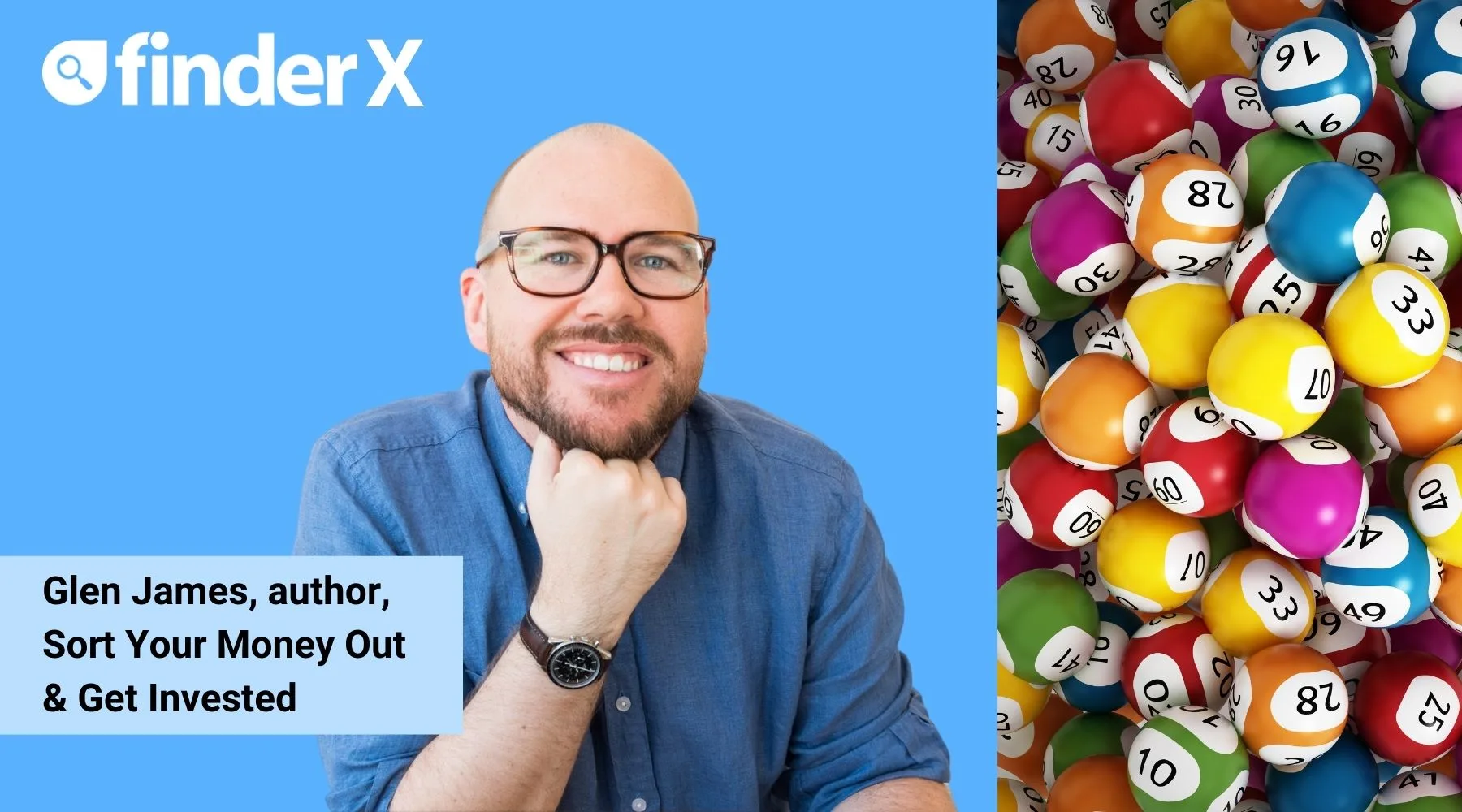How do you get rich? The answer is not a lotto ticket

Glen James of My Millennial Money shares his secrets to saving and growing your money.
As humans, we are wired to take the path of least resistance, where possible. Think of all the innovation that history has presented so far: It's all about less work for more.
It makes sense.
I'd rather say, "Hey google, turn off the TV!" than actually use a remote. Actually, if you're an 80s child you may remember when your family got their first VCR (that's a video cassette recorder, if you're under age 30) with a remote … on a wire … that wasn't long enough to even reach the couch.
Usually, more times than not, wealth happens in the following ways: solving people's problems (think Microsoft's Bill Gates or Amazon's Jeff Bezos); creating a product that people find pleasure in using (think Instagram); and creating a product to fill a need in the market (think Melanie Perkins of Canva).
These are extreme examples and I actually hate using them because they are "unicorns". So let's learn some garden-variety ways you could become wealthy.
Manage your money well
Building wealth is all about wealth-based habits, and good money management is a key habit to include in your long-term plan. Part of managing your money well is learning good money habits day-on-day, week-on-week.
To manage your money you need to take stock of the waste in your life; understand that it begins with a habit, not an amount of money; get on the same page as your partner if you're in a long-term, committed relationship; take small steps and celebrate the wins.
Buy and hold assets for the long term
Investing is all about choosing your strategy, making the moves to suit, then sticking with your strategy to see it through. Changing your plans every 2 minutes won't bring about lasting results.
Think of the concept of a money tree: plant it, water it, give it some sunshine, throw on some fertiliser and let it grow. Don't pull it out of the ground, check the roots and replant it every day – let it do its thing.
For now, keep in mind that you should not start investing in growth assets until you have your foundations in place:
- Ensure you have a clear strategy: If things change, you won't be able to hold an asset for the long term.
- Understand that your investment does not have to be complex to be a good investment for the long term.
Have the mindset of an investor, not a saver
A principle we've heard many times is "save, save, save". Maybe that's something you learned growing up. The problem with having cash savings is you may be tempted to transfer money out and buy stuff.
I want to challenge your thinking to be more about making your dollars work for you, for example, invest into a good diversified fund (it doesn't have to be complex) and just keep pumping it.
I urge you to make the decision right now that you are an investor, not a saver; remember that you're already an investor if you have retirement savings. Gamify your investing by adding to your investments and enjoying seeing your account balance grow over time.
Set goals
You need goals because without them you have no framework or direction for a strategy.
- Keep your goals relative and relevant: whether it's a new small business you want to build, aiming for a renovation on your house, a holiday, a new career or study.
- Double-check your goals: Are they actually yours or do they belong to an influential person in your life?
- Check the order of your goals: Your first goal might need to be a career move or house deposit.
Finally, bounce your goals and the order of your goals off a trusted friend, family member or mentor.
Spend less than you earn
Get to the basic minimum of what you need to live and see where you stand. Can you think of 1 or 2 small habits you could adopt to change your behaviour so you don't default to spending without thinking?
Get to know your money personality; become self-aware. Catch yourself before your natural spending habits kick in. Set time between big purchases or make sure you have thresholds. If you're unsure whether you're spending more than you earn, look at your savings and investments to see if they are growing each year.
It's important to define what "rich" means to you. Big income does not mean big wealth. Sounds basic, but it's essential to know. Make the most of what money you have, whether that's heaps or not much at all.
Glen James is the co-creator and co-host of the My Millennial Money podcast and author of Sort Your Money Out & Get Invested (Wiley, $32.95).
Disclaimer: The views and opinions expressed in this article (which may be subject to change without notice) are solely those of the author and do not necessarily reflect those of Finder and its employees. The information contained in this article is not intended to be and does not constitute financial advice, investment advice, trading advice or any other advice or recommendation of any sort. Neither the author nor Finder has taken into account your personal circumstances. You should seek professional advice before making any further decisions based on this information.
Read more Finder X columns
-
All the big savings account interest rate rises: ING, AMP, Westpac + more
6 Feb 2026 |
-
Australian credit card debt soars 10% in a year: How can you escape the trap?
6 Feb 2026 |
-
4 cashback home loan offers to ease the pain of RBA rate hike
4 Feb 2026 |
-
Finder’s RBA Survey: Easing cycle ends as RBA delivers first rate hike since 2023
4 Feb 2026 |
-
Ubank Save is increasing its bonus rate up to 5.35% p.a.
3 Feb 2026 |
Ask a question
